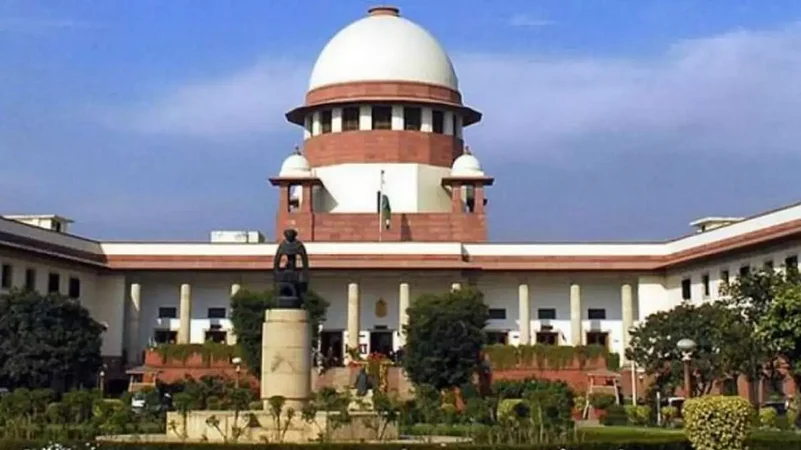In a pivotal development, the committee spearheaded by Justice Gita Mittal, appointed by the Supreme Court to oversee the recovery and rehabilitation of victims affected by ethnic unrest in Manipur, has submitted a trio of groundbreaking reports. These comprehensive documents highlight the urgency of reconstructing vital identity documents, enhancing compensation frameworks, and enlisting domain experts to bolster the committee's functionality.
Acknowledging the significance of these reports, the apex court has announced its intention to issue "certain procedural directions" on August 25th, aimed at streamlining the operations of the Justice Mittal panel. These directives will encompass aspects such as administrative requisitions, funding to support administrative and other expenditures, and the establishment of a web portal to disseminate the panel's impactful endeavors.
The Supreme Court, comprising Chief Justice D Y Chandrachud and Justices J B Pardiwala and Manoj Misra, had on August 7th, instituted a committee comprising three former women high court judges, who were entrusted with overseeing relief efforts, compensation disbursement, and the meticulous monitoring of criminal case investigations by former Maharashtra police chief Dattatray Padsalgikar.
In a brief hearing, the court ordered the circulation of the three reports to concerned legal representatives and counsel aiding Solicitor General Tushar Mehta, who represents the Centre and the Manipur government. The suggestions encapsulated in these reports will be compiled by legal luminary Vrinda Grover, in consultation with the committee. These consolidated insights will then be shared with Manipur's advocate general before the impending session on August 25th, where pivotal orders are anticipated to be issued.
The committee's reports underscore crucial issues such as the loss of essential identification proofs, including Aadhaar cards, by numerous victims. In response, the committee advocates for the meticulous reconstruction of these documents to alleviate the plight of those affected.
Apart from immediate procedural directions, the Supreme Court has also contemplated logistical arrangements, with Chief Justice Chandrachud indicating discussions with Justice Mittal and the Chief Justice of the Delhi High Court regarding office space for the panel. In the absence of suitable solutions, the Union Ministry of Home Affairs may step in to identify a fitting location.
Justice Mittal's multifaceted commitment is not confined to this panel alone, as the esteemed former Chief Justice of the Jammu and Kashmir High Court is concurrently addressing the establishment of "vulnerable witness deposition centers" across India.
The formidable committee, comprising Justice Mittal along with retired Justices Shalini P Joshi and Asha Menon, was entrusted with direct submission of reports to the Supreme Court, underlining the court's vested interest in supervising cases linked to the tumultuous ethnic conflict. This initiative endeavors to restore faith in the rule of law and amplify the healing process in the strife-torn state.
This panel was constituted in the wake of disturbing visuals depicting the humiliation of women in the region, an event that deeply unsettled the apex court. The committee's mission extends to conducting on-site assessments of relief camps and evaluating the conditions faced by residents.
As the Supreme Court's deliberations continue, 11 FIRs have been transferred to the CBI for thorough investigation, underscoring the judiciary's commitment to unearthing the truth. The court is concurrently examining approximately 10 petitions related to the escalating violence, aiming to ensure justice and institute measures for relief and rehabilitation.
The turmoil, which began with a 'Tribal Solidarity March' on May 3rd, led to the loss of more than 160 lives and left several hundred injured. The violent upheaval was sparked by protests against the Meitei community's call for Scheduled Tribe status, underscoring the urgent need for healing and resolution.


























